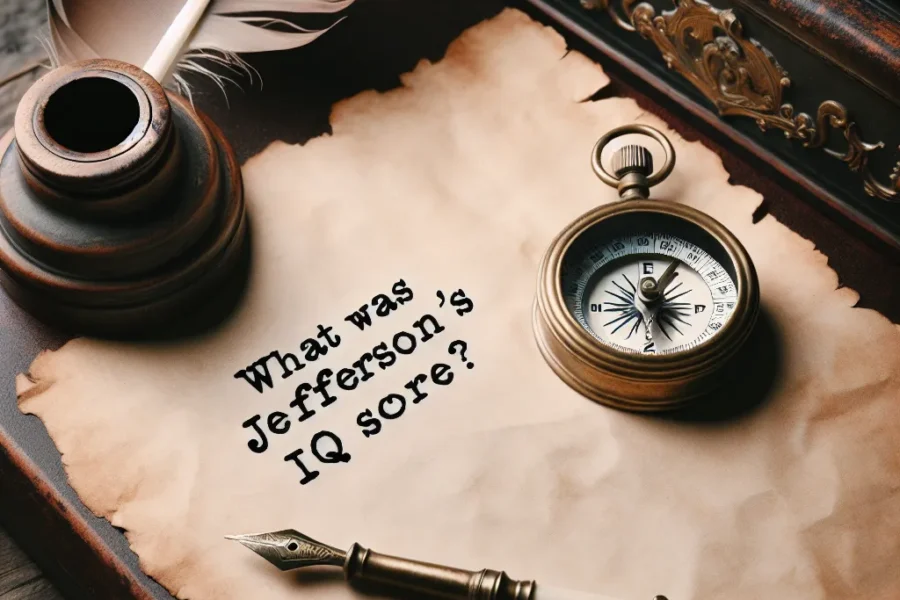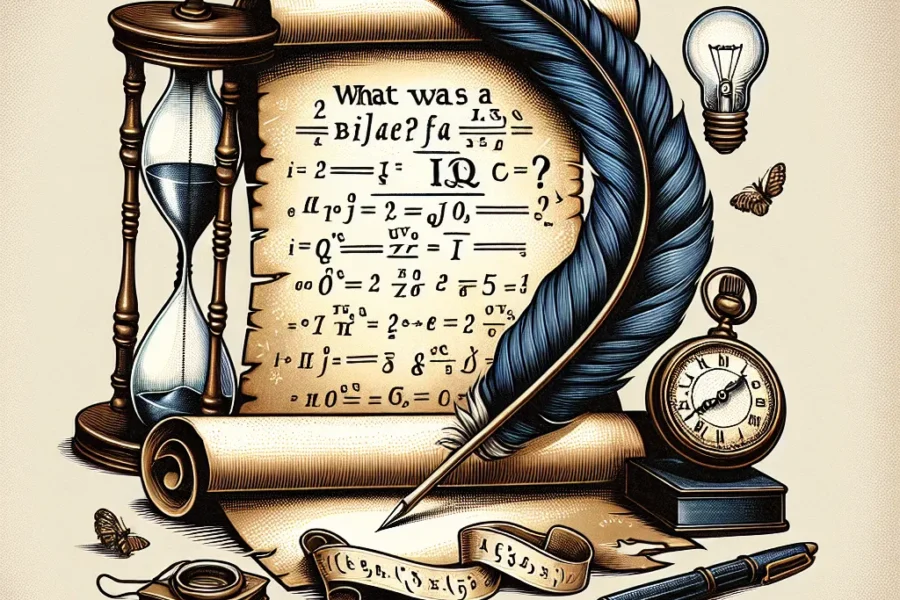What Was Benjamin Franklin’s IQ Score?
Benjamin Franklin, one of the Founding Fathers of the United States, was a polymath whose contributions to science, politics, and literature continue to resonate today. Despite his extensive list of achievements, questions about Franklin’s intelligence quotient (IQ) persist. With modern-day IQ tests as a standard for measuring cognitive ability, many wonder what this founding polymath’s IQ score might have been had he taken one. In this comprehensive analysis, we will delve into Franklin’s life, his intellectual pursuits, and the methods available to estimate his potential IQ score based on historical insights and scholarly evaluations.
If you are looking for legitimate IQ Tests which pass the entry bar for Mensa, see our IQ Tests.
To begin with, it’s essential to understand the context in which Benjamin Franklin lived and thrived. Born on January 17, 1706, in colonial Boston, Franklin was the 15th of 17 children. His formal education was cut short at the age of ten due to financial constraints, but his intrinsic curiosity and voracious appetite for reading compensated for his lack of formal schooling. By 12, Franklin had apprenticed under his brother James, a printer, which exposed him to a wide range of literature and ideas that later influenced his intellectual development.
Despite the limited availability of formal education, Franklin’s self-directed learning was prolific. He is credited with founding the first public lending library in America and the American Philosophical Society, institutions that signified his commitment to knowledge dissemination and intellectual collaboration. Franklin’s keen intellect manifested in various fields, including science, where his experiments with electricity led to the invention of the lightning rod, and sociology, through his proposals for social and political reforms.
To estimate Benjamin Franklin’s IQ, we must turn to his documented achievements and the breadth of his knowledge. Modern-day psychologists and historians often use the method of historiometry, a scientific approach that assesses the intellectual capabilities of historical figures based on their life works and achievements. Although speculative, these assessments can offer valuable insights into Franklin’s cognitive prowess.
One of Franklin’s most notable intellectual feats was his “kite experiment” which demonstrated that lightning is electricity. While the precise details of the experiment are still debated, the conceptual leap to connect atmospheric electricity to a down-to-earth kite and key apparatus showcases remarkable speculative and experimental thinking. Later, Franklin’s invention of the lightning rod was a practical application of his theoretical work, which directly contributed to public safety and advanced the field of electromagnetism.
Franklin’s contributions extended beyond science. He was a skilled diplomat and statesman, playing crucial roles in the American Revolution and the drafting of the United States Constitution. His ability to navigate complex political waters and advocate for the budding nation’s interests in Europe speaks volumes about his strategic thinking and understanding of human nature. For example, his success in securing French support for the American Revolution significantly tipped the scales in favor of American independence.
In addition to his diplomatic and scientific contributions, Franklin was a prolific writer and philosopher. His publication of “Poor Richard’s Almanack” under the pseudonym Richard Saunders combined wit, wisdom, and practical knowledge, and it became a guiding text for many colonial Americans. He also authored an autobiography that remains a seminal work in American literature, providing insights into his thoughts and philosophy.
Franklin’s involvement in various fields of human endeavor—science, politics, literature, and social reform—demonstrates an extraordinarily broad and deep intellectual spectrum. These contributions lead some modern scholars to estimate that Franklin’s IQ would likely fall within the range of 160 to 180, placing him among the intellectual giants of history. Most contemporary IQ tests consider scores above 160 to be indicative of “genius” or “near-genius” level intelligence.
While these estimates are speculative and inherently limited by the absence of a formal IQ test from Franklin’s era, they align with what we understand about high-achieving polymaths. For example, another often-quoted historical figure, Leonardo da Vinci, who exhibited similar intellectual versatility, is also estimated to have had an IQ in the same range. Comparatively, Franklin’s breadth of influence and the depth of knowledge he demonstrated across multiple disciplines bolster the argument for a high intellectual classification.
It’s also noteworthy to consider that Franklin’s intelligence was not solely exhibited through traditional academic achievements but also through practical innovations and societal contributions. His development of the Franklin stove, bifocal glasses, and the flexible urinary catheter demonstrates his knack for solving everyday problems with enduring solutions. Moreover, his creation of the first organized fire department in Philadelphia and advocacy for a public hospital showcase his forward-thinking approach and humanitarian concern.
Another aspect that demonstrates Franklin’s high intellectual capacity is his skepticism and inquiry into established norms. For example, he challenged prevailing beliefs about temperance and health through his own dietary experiments and promoted inoculation against smallpox at a time when it was still contentious. His methodical notes and observations could be seen as precursors to modern empirical research and the scientific method.
Franklin also exhibited a high degree of emotional intelligence, a quality now recognized as critical in leadership roles. His ability to relate to people from differing cultural, socioeconomic, and political backgrounds aided him greatly in his diplomatic endeavors. His humorous and sometimes self-deprecating writings helped him gain widespread popularity and influence, both in the colonies and in Europe.
While it’s impossible to put an exact figure on Benjamin Franklin’s IQ score, the synthesis of his life’s work provides strong evidence that it was exceptionally high. His ability to excel in a myriad of disciplines—each requiring different cognitive skills—makes him a unique case for intellectual study. Historiometrical analysis thus places him comfortably in the highest echelons of human intelligence.
In summary, Benjamin Franklin’s achievements in science, contributions to American political thought, and innovative practical inventions provide ample ground to consider him as having possessed a very high IQ. Although he never took a modern IQ test, the holistic assessment of his life’s work and cognitive abilities allows for a reasoned estimation that he would likely have scored between 160 and 180. His legacy continues to endure, a testament to the extraordinary intellectual capacity and multifaceted genius that defined his life.
If you are looking for legitimate IQ Tests which pass the entry bar for Mensa, see our IQ Tests.



Leave a Comment